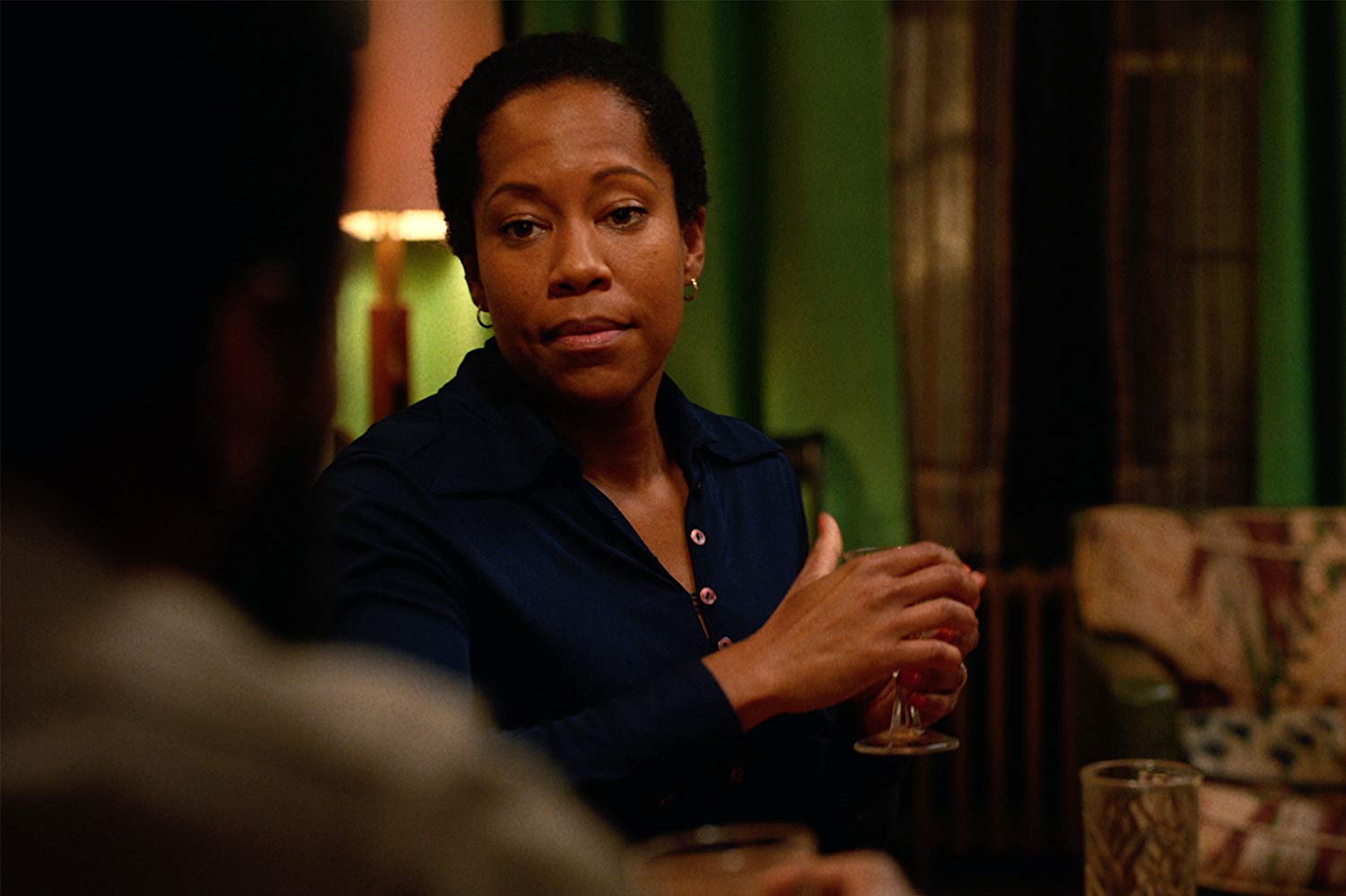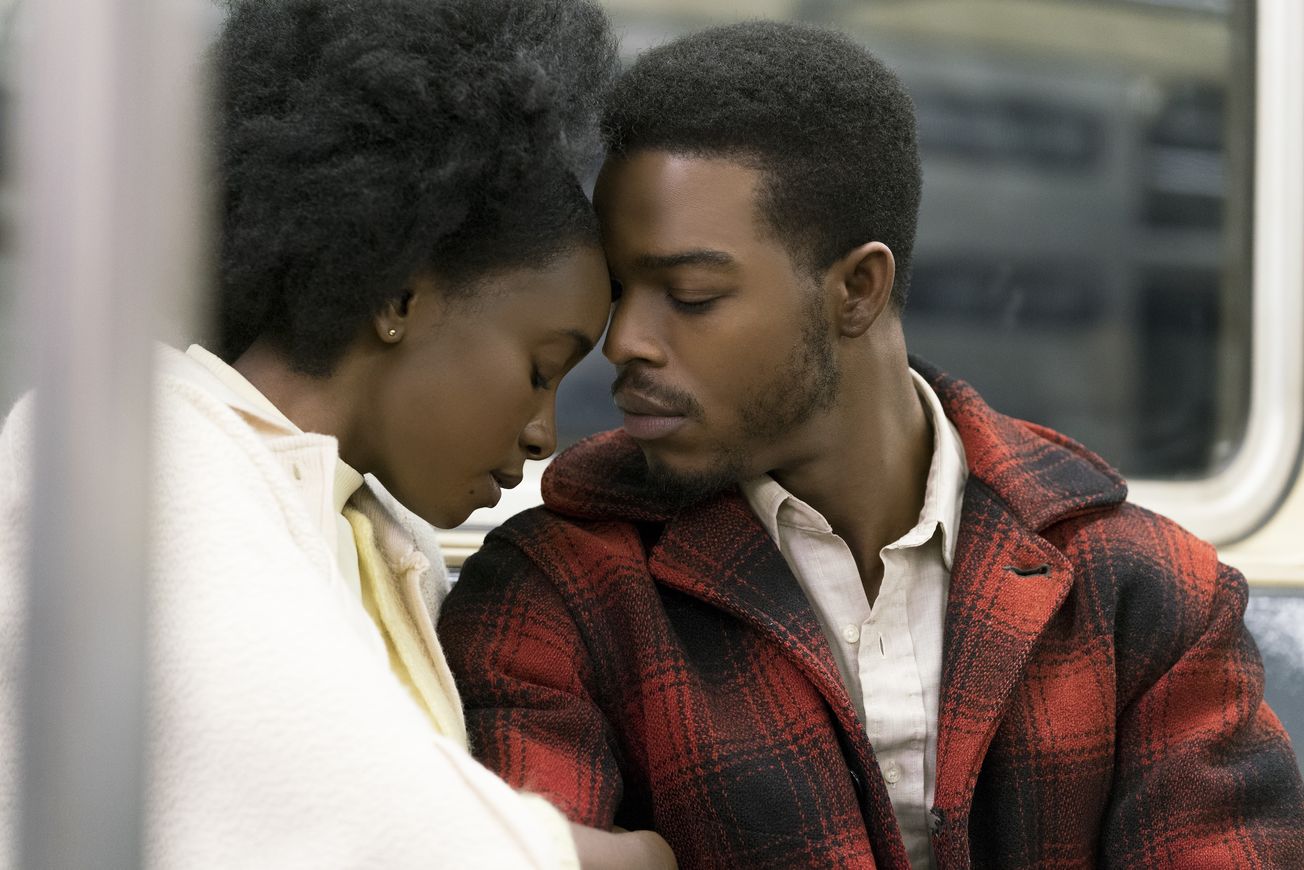By Patrick Sullivan, Film & TV Editor
The filmmaker’s first film after Moonlight is a slow paced Baldwin adaptation with beautiful imagery striking against a harsh backdrop of racism in the US justice system.
It has been two years since filmmaker Barry Jenkins’ personal work Moonlight (2016) became a cinematic classic, and the expectations for anything he created thereafter changed to astronomic heights. His follow up feature is an adaptation of James Baldwin’s 1974 novel If Beale Street Could Talk which is the story of Tish (KiKi Layne) and Fonny (Stephan James), two childhood friends who fall in love in early adulthood before Fonny is wrongly accused of rape and imprisoned.
Youtube / Annapurna Pictures
Barry Jenkins is a true artist and, working again with Moonlight cinematographer James Laxton, If Beale Street Could Talk features many stunning still frames. He is the antithesis of Michael Bay in that regard - while Bay uses high intensity, fast paced, large scale shots to exhilarate the audience, Jenkins elevates the most ordinary objects or moments with extraordinary lighting and slow introspection unlike anyone else.
Smoking on screen is continually being discouraged, but, oh my, in one scene here it has never looked more beautiful. Fonny - an aspiring sculptor - examines his latest work of art with a cigarette, circling the empty room in which it centres. The white smoke cuts through the dim light from above and snakes round him as he peruses his masterpiece tellingly. The scene is intercut with a parallel of Fonny circling his prison cell - showing him at his most free and oppressed.
It's February! In this month's Cinema Podcast @midnightmovies and @msc45 talk all things @BarryJenkins (our Sunday Brunches dedicated to him kick off this weekend with Beau Travail) and his latest film If Beale Street Could Talk. Listen here: https://t.co/leRUTaYJN0 pic.twitter.com/7D0cCMls3l
— Watershed (@wshed) February 1, 2019
Another wondrous sequence occurs in the final third when Tish gives birth in Fonny’s absence, supported by her in-laws. The moment is set in a modest bathroom and accompanied by flashbacks to when Fonny and Tish shared baths together as kids, but it’s impossible to do justice in words the impact of Jenkins’ imagery.
There exists both here and in the earlier sex scenes an appreciation for the natural beauty of the acts, which provides a stark contrast to the hopelessness and desperation the characters feel as a result of human cruelty. The familial love, especially fervent when Tish holds her newborn son, presides over this film despite its themes, and it is also heartwarming to see such a prominent romantic arc between two Black characters.
The patient pacing of the entire film is at times stultifying and elsewhere a wonderful example of classic drama. The narrative is revealed throughout rather than actively told - we know early on Fonny is imprisoned through Tish’s transparent voiceover, ‘I hope nobody has to look at somebody they love through glass,’ which precedes a scene where they stare at each other longingly through glass. Details regarding the origins of their love story and the crime Fonny didn’t commit are drip fed, giving every luvvy-duvvy date Fonny and Tish share more weight than one might expect in a tale of racial injustice.

IMDb / If Beale Street Could Talk / Annapurna Pictures
However, the passive storytelling techniques excel in certain sequences, especially the middle section when Brian Tyree Henry appears as Daniel. KiKi Layne and Stephan James do perfectly fine jobs with their lead roles, but Henry is the standout performer in his short cameo, as well as Regina King in her award-winning supporting role as Fonny’s determined mother.
Henry has the gravitas needed to execute the slower, layered delivery. He undercuts his lively character introduction with a compelling, dark monologue detailing his time unjustly spent in prison before snapping back to the default, happier mood. One of Daniel’s utterances summarises the political heft of the subject matter: ‘When you’re in there, they can do they whatever they want.’
If Beale Street Could Talk (2018)
— Faded Yoda (@FadedYoda) January 31, 2019
Director: Barry Jenkins
DOP: James Laxton pic.twitter.com/UGU1PCxdqQ
As it reaches its climax, the tempo could have risen to exemplify the weight of the story and really hit home the systemic injustice of racism in contemporary US history. That being said, the beauty of the film partially owes itself to its narrow focus and the time it allows for considered observation. Overall, If Beale Street Could Talk is another gorgeous Barry Jenkins film, and a rare on-screen love story between Black characters.
If Beale Street Could Talk is showing at Watershed from February 8.
Featured Image Credit: London Film Festival / If Beale Street Could Talk
Does this Jenkins adaptation do the James Baldwin book justice?
Facebook // Epigram Film & TV // Twitter









